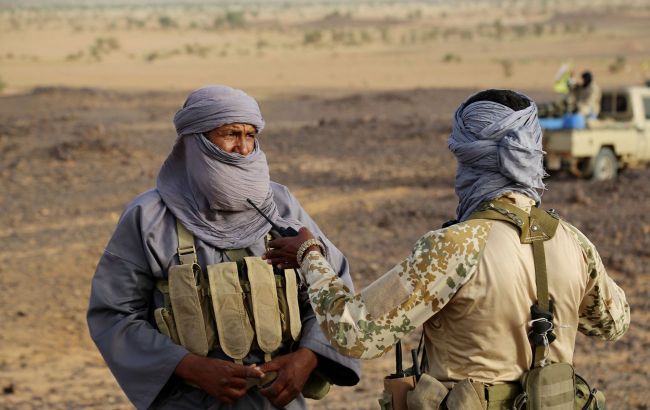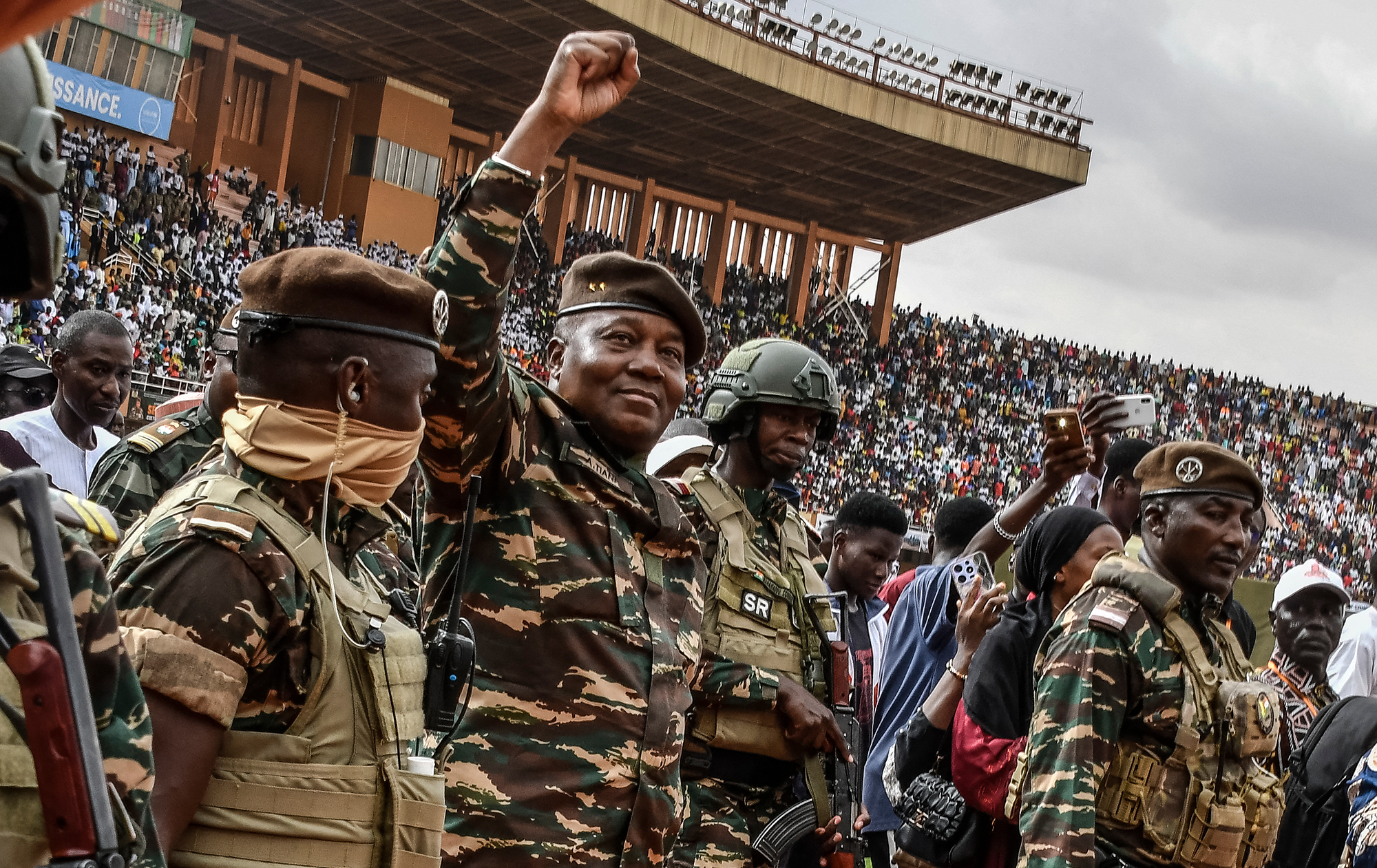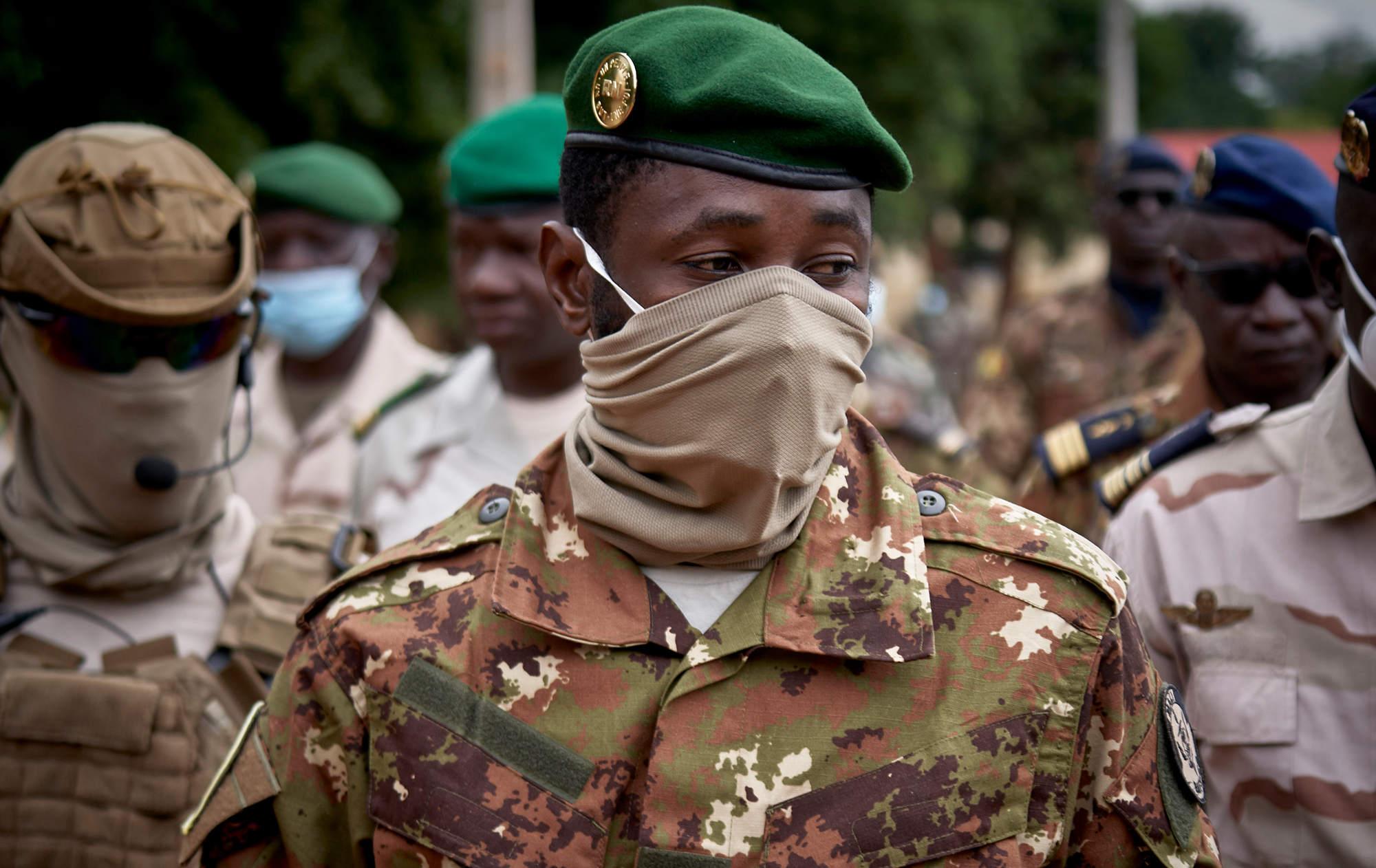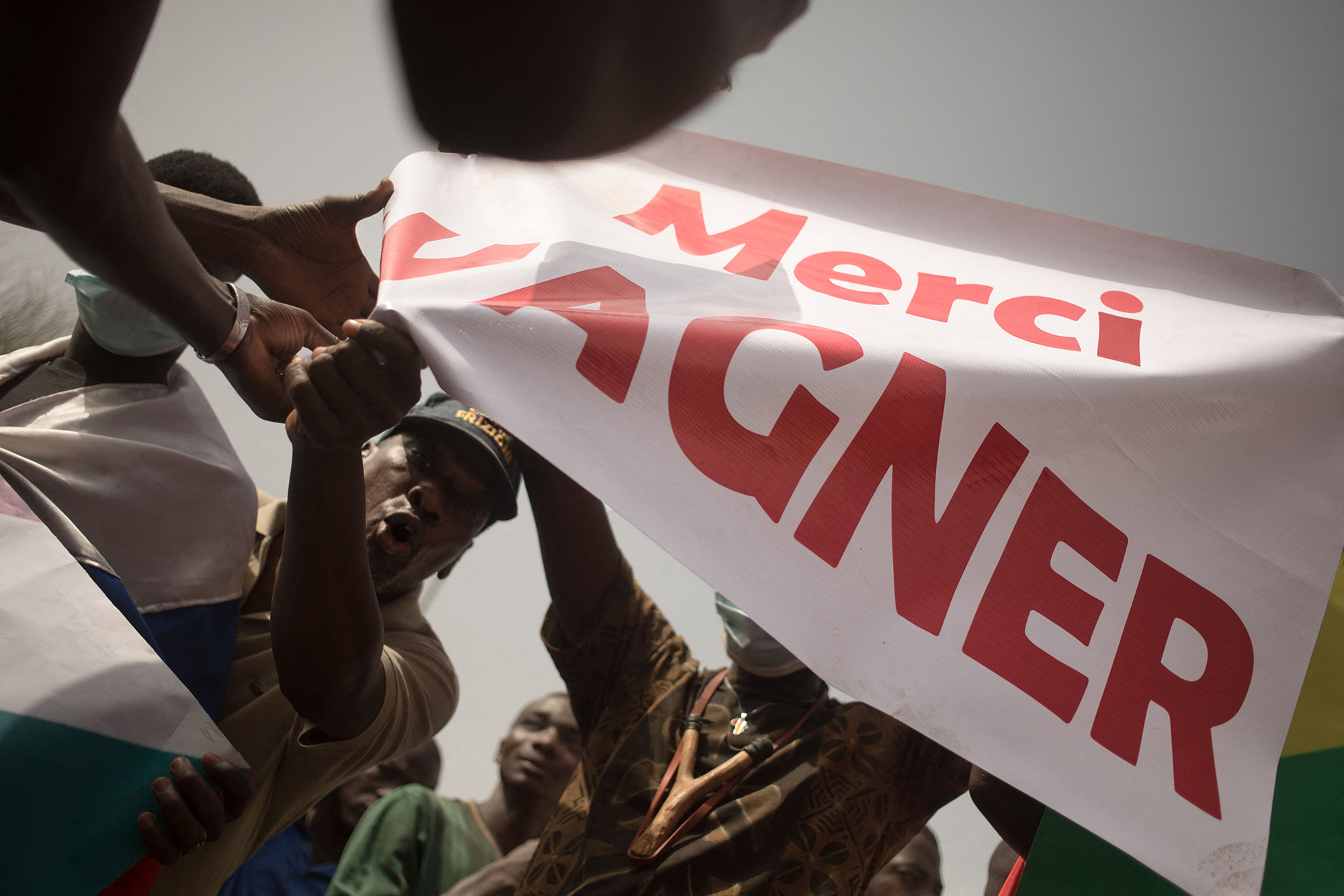African casus: Why Mali and Niger cut ties with Ukraine and Russia's role
 The Tuareg attack caused a diplomatic conflict between Ukraine, Mali and Niger (photo: Getty Images)
The Tuareg attack caused a diplomatic conflict between Ukraine, Mali and Niger (photo: Getty Images)
Why Mali and Niger decided to sever diplomatic ties with Ukraine, Russia's involvement, its interest in Africa, and what are the results of Ukrainian diplomacy after several years of struggle for the continent - read in the material by RBC-Ukraine.
Contents
- Why Mali and Niger severed ties with Ukraine and whether this could become a trend
- Russian interests in Africa
- What Ukraine has achieved in Africa
Why Mali and Niger severed ties with Ukraine and whether this could become a trend
This week, the transitional government of Mali (which is effectively a military junta that seized power in a 2021 coup) announced the severance of diplomatic relations with Ukraine. A few days later, Niger made a similar decision. The official reason for the break was Ukraine's alleged support of Tuareg rebels, who attacked the Malian army and Russian Wagner Group mercenaries at the end of July.
In its statement, the Malian junta referred to alleged remarks by Andrii Yusov, a representative of the Defense Intelligence of Ukraine, which supposedly acknowledged Ukraine's role in the Tuareg attack. They also cited a Facebook post from the Ukrainian Embassy in Senegal with an excerpt from this broadcast, which allegedly demonstrated "support for international terrorism in Mali".
However, in reality, neither Yusov nor the Ukrainian embassy supported the Tuareg attack on the Malian army in any way, nor did they claim Kyiv's involvement in these events. Therefore, it is apparent that the Tuareg attack and Ukraine's reaction were used merely as a pretext, a kind of "casus belli," for severing diplomatic relations.
The Ukrainian embassy was criticized for this publication by Burkina Faso and Senegal, with the latter even summoning Ambassador Yurii Pyvovarov for an explanation. However, only Mali and Niger took the drastic step of breaking diplomatic relations with Ukraine. The reason for this may be the very close ties between these two countries and Russia.

Since the 2021 coup, Mali has been ruled by a military junta (photo: Getty Images).
Mali, Niger, and Burkina Faso are former French colonies where the political situation has been very unstable since gaining independence, with military coups occurring from time to time in some of them. Despite this, these countries maintained close ties with France, and only after the recent coups have Mali, Niger, and Burkina Faso turned away from Paris toward Moscow. The military juntas forced the French army to leave these countries, instead seeking help from Russia, which has long established itself as a "guardian" of regimes in African countries.
After the 2021 coup, the Malian junta systematically deepened its political dialogue with Russia. There were numerous visits by Mali's leadership to Moscow, and Russian military commanders have repeatedly visited Mali.
"It is clear that the Malian transitional government has chosen a course of maximum strategic rapprochement with Russia. Despite its isolation and recognition as an aggressor state, the Malian side has chosen Moscow as its benchmark and believes that Russia will ensure peace and stability in Mali," said Maksym Subkh, Ukraine's Special Representative for the Middle East and Africa, to RBC-Ukraine.
According to him, the accusations against Ukraine were made immediately, suggesting that no investigation into that military clash was conducted by the Malian authorities.
"Due to political motives and to please the Kremlin, such hasty and short-sighted conclusions were made, and the decision to sever diplomatic relations with Ukraine was made immediately. The actions of the Malian authorities reflect Russian narratives and directives that it gives to its satellites in Africa in exchange for ensuring the junta's personal safety," the diplomat said.
As for Niger, its decision, according to Subkh, aligns with the general foreign policy course of the states in the so-called Sahel alliance. This alliance was created by the military juntas of Mali, Niger, and Burkina Faso after leaving the Economic Community of West African States (ECOWAS), likely under the influence of Russia, which seeks to divide the African continent.
Unlike Mali, Niger, before the military coup in July last year, was one of Ukraine's friends in Africa and supported all Ukrainian resolutions at the UN. In August 2022, Niger even supported the Crimean Platform. However, the Nigerien junta severed all ties with Kyiv, so the official break did not actually change the situation.
Currently, both Mali and Niger adhere to a political course that can be described as isolationist, anti-Western, and pro-Russian, while also ignoring intra-African integration processes, the diplomat explained to RBC-Ukraine. In particular, the Malian junta also accused neighboring Mauritania of being involved in the Tuareg attack, alleging that the rebels trained on its territory.

Before the military coup, Niger was a friend of Ukraine, but the junta changed the country's course (photo: Getty Images).
There are other African countries friendly to Russia that could follow the path of the Malian and Nigerien juntas and sever diplomatic relations with Ukraine. For example, the Central African Republic or the previously mentioned Burkina Faso. However, according to Subkh, Ukraine is doing everything possible to convey a realistic vision of what is happening in Africa and demonstrate its determination and sincere desire to develop honest and mutually beneficial partnerships with all countries on the continent.
"We have always said that we are open to dialogue and cooperation. Therefore, I hope that other countries will consider Ukraine's open stance, despite political preferences. Thus, I hope that other countries that pursue a similar foreign policy course to Mali and Niger will refrain from taking similar measures," he added.
Russian interests in Africa
Russians have been expanding their influence in Africa for decades. Back in Soviet times, Moscow supplied weapons to African countries in their struggle for independence, and African students went to study in the USSR. However, today, Russia's interests in Africa are purely mercantile - it needs resources for warfare, and these resources are found in African countries.
For instance, Niger is the ninth in the world in uranium ore deposits, while Mali is rich in gold, tin, copper, and a whole range of other minerals. Russia, with the help of the Wagner Group, is simply plundering these resources in exchange for supporting and protecting the regimes of these countries.
"It is no secret that with the help of Wagner, Russia is plundering and taking these natural resources and minerals, such as uranium, gold, or other rare earth metals, for next to nothing, to use in its military-industrial complex or sell to finance its war machine and continue its aggression against Ukraine. This is obvious; this is a direct connection," said Maksym Subkh.

Russia is using mercenaries to plunder African countries (photo: Getty Images)
Moreover, according to the diplomat, Moscow is concerned about Ukraine's activities in Africa and therefore is trying to create its own pro-Russian enclaves from which to wage an anti-Ukrainian and anti-Western information war. However, Russia's resources in this regard are limited, as many African countries find Moscow undesirable and try to do everything possible to prevent the appearance of the Wagner Group or other Russian mercenaries on their territory.
"Therefore, Russia acts to essentially take control of the entire Sahel belt, which stretches from Mali to Sudan. Russia will continue to destabilize the security of other countries in this belt to effectively take control and divide Africa with these enclaves from the Atlantic to the Indian Ocean," he explained.
What Ukraine has achieved in Africa
After Russia's full-scale invasion, Ukraine intensified its efforts to build relationships with Africa, attracting as many African countries as possible to its side. Overall, this has yielded results, as a significant number of African countries support Ukrainian resolutions at the UN.
During this time, there have been dozens of conversations between the Ukrainian President and African counterparts. Last year, a whole delegation of African leaders, led by South African President Cyril Ramaphosa, visited Kyiv, and the Ukrainian Foreign Minister, Dmytro Kuleba, made his fourth tour of Africa.
"In two and a half years, we have opened up Africa more than in the previous 30 years since Ukraine's independence. This is already a serious step forward," Maksym Subkh emphasized in a conversation with RBC-Ukraine.
One important step in strengthening Ukraine's presence on the African continent was the opening of new embassies. This year, Ukrainian diplomatic missions have appeared in seven African countries, with three more expected to open by the end of the year.
"So now we have 17 embassies in African countries, which significantly exceeds the number of embassies of our neighboring European countries. By the end of the year, we will have 20 diplomatic missions in Africa," added the diplomat.
At the same time, according to him, Ukraine continues to assist Africa with grain through the Grain from Ukraine humanitarian program and develops various other types of cooperation with African countries by integrating into their economies and sharing that are useful to them.
"And undoubtedly, an important daily track is countering the spread of Russian propaganda in Africa," Subkh added.
In this regard, the diplomat explained that the Ukrainian party works with journalists and non-governmental organizations to help ordinary African citizens better understand the nature and essence of Russia's aggressive war against Ukraine.
***
Despite the severance of diplomatic relations with Mali and Niger, there are still a significant number of countries in Africa that are friendly to Ukraine, standing by Ukraine's side at the UN and supporting the Ukrainian peace formula. Therefore, this unpleasant situation for African-Ukrainian relations is unlikely to significantly undermine Ukraine's position in Africa, no matter how much Moscow wants it.
Sources: the statements of the governments of Mali and Niger, the Ministries of Foreign Affairs of Senegal and Burkina Faso, and the comments of the Special Representative of Ukraine for the Middle East and Africa Maksym Subkh.

